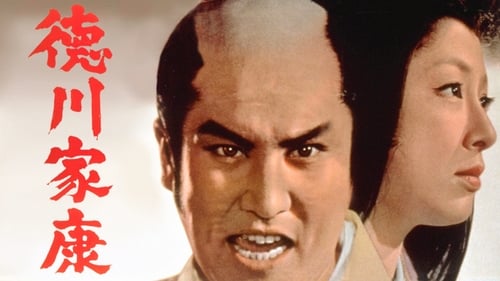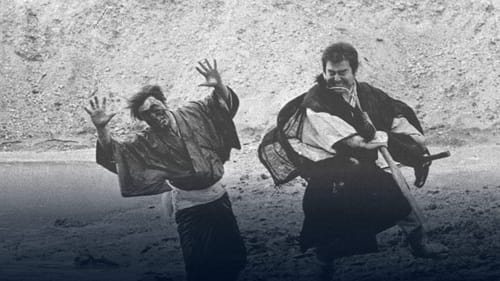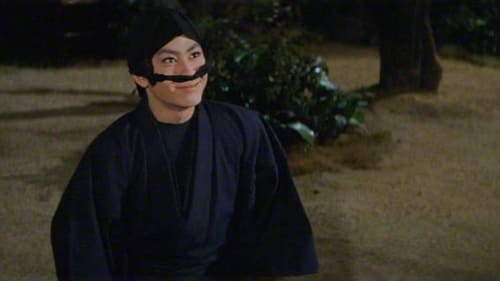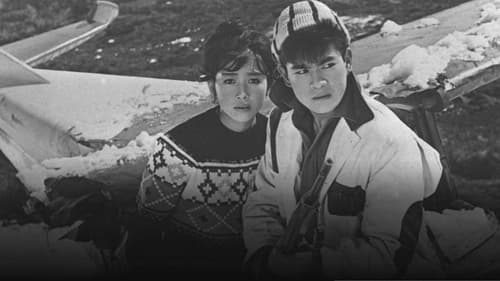
In turbulent 16th-century Japan, the leaders of a minor fief have their child taken from them as a political hostage. His mother and his clan endure years of tribulations until he can return.

This tragic drama shows a young man fettered by Bushido, the way of the Samurai, who tried to escape the chains of his position, but was being forced to die. When the Tokugawa Shogunate ruled the land, Tatsuno castle in Wakisaka Clan's home of Harima held an established custom, the inspection of the arms warehouse. The Government Inspector Okuno Magodayu found a slight bit of dirt on the point of a spear and mentioned it with disdain. Ezaki Shinpachi heard it and started an argument with him. Magodayu then sent a a letter of challenge to him because he felt insulted by a low-ranking underling without a title. As it turned out Magodayu was killed. Since then, Shinpachi and the Okuno family have had continuous revenge duels. The tension mounts as this story builds to an extremely violent climax, when blood must pay for blood if the clan is to survive!

This is the story of a bad man who re-discovering humanity via woman and child while clashing with the yakuza and being hunted by a man called “Death” who has his own dark past. The prototype for the later two yakuza priest series with Shintaro Katsu and Tomisaburo Wakayama. Apparently so. And the swordsman motif seems to have been concurrent with Daiei's first ZATOICHI production.

Young swordsman Shintaro must fight against evil officials who plot to overthrow the youthful Shogun.

Jotaro
In the fourth installment, Musashi's potentially greatest opponent Kojiro jumps in and out of the story at the oddest and most coincidental moments. As his great love Otsu has succumbed to madness. Musashi then sets off to beat the functionaries of a treacherous clan in an arranged duel. 73 against one. Boastful Kojiro watches, secure in the knowledge that only he is a worthy opponent.

Jotaro
In the third installment of Yoshikawa's novel Musashi, things continue from the 2nd film at the end of battle, where Miyamoto continues on a mission of learning; with the introduction of his arch-rival Sasaki Kojiro; and lastly the large cast of characters rendezvouses for a fateful finale.

江戸の名物男は義賊、鼠小僧の次郎吉(北大路欣也)。盗みはすれど非道はせず。盗んだ金はすべて貧しい人々にわけ与え、江戸っ子仲間の憧れの的となっていた。だが有名になればニセ者が横行するのは世の習いで、殺人強盗の汚名を着せられた次郎吉は岡っ引きの十手に追われ、吉原のとある料亭に逃げ込んだ。その一室で大盤振る舞いをしていたのは北町奉行所近江雅楽頭の長男、銀八郎(松方弘樹)。「ニセ者を捕まえねえことには男がすたる」と言い切る次郎吉に「まず江戸を離れろ」と言って逃がしてやる。恋人や子分に別れを告げ、東海道を行く次郎吉は、箱根の関所で役人に追われ山中に逃げ込む。そこで関所破りで追われる銀八郎と再会する。銀八郎は、遊興三昧で父の怒りを買い、勘当されたのだった。旅はきまぐれ足まかせ。すっかり意気投合した若い二人は弥次サン、喜多サンと名を改め、珍道中が始まった。

Jotaro
The remake of Yoshikawa's novel continues with the second installment in which Takezo, soon to be Miyamoto Musashi, emerges from the Himeji Castle after three years of intense contemplation and philosophical study and starting on his epic quest to complete his skill in the Way.

Child C from Ueda Farm
The great Sonny Chiba stars as Goro Saionji, a drifting thrill-seeker. Out to investigate a suspisious plane crash in the Red Valley, he uncovers a plot involving yakuza and a shady land developer to evict an old farmer off of his land to build a sky resort. Goro must now help the old farmer and his daughter and take those criminals on.








